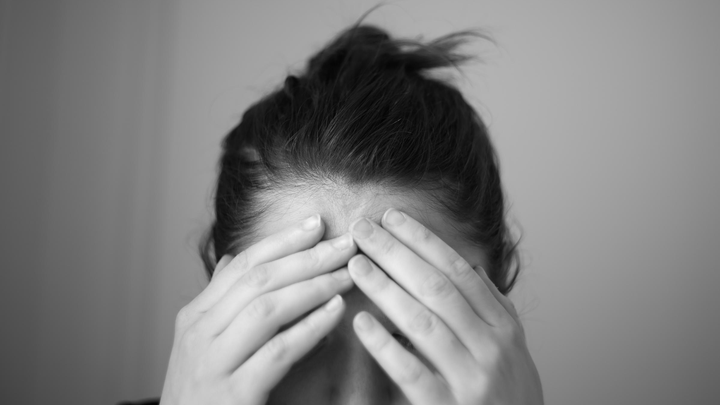
UNT Students Support JED in Protecting Youth Mental Health
Tax deductible
“The best we can do is to keep asking for help and accepting it when you can.” - L. Higgins
Hello to all! We’re a group from the University of North Texas, and we’re raising money for the Jed Foundation, a non-profit organization encouraging mental health education and resources around the nation to teenagers and young adults.
Every day, countless teenagers and young adults face overwhelming struggles, whether it’s anxiety, depression, or the pressure of daily life or at home.
Research shows that over the past year 12.6 million people between the ages of 18 and 25 experienced a mental, behavioral, or emotional health issue. This amounts to 1 in 3 (36.2%) young adults, a percentage that is higher than any other adult age range. This rate has increased significantly over the past several years (from 22.1% in 2016). (SAMHSA, 2023)
42% of high school students reported feelings of sadness or hopelessness in the past year. This percentage is higher for females (57%), Hispanic students (46%), multiracial students (49%), and lesbian, gay or bisexual students (69%). (CDC, 2023)
Among college students, 36% have been diagnosed with anxiety and 30% have been diagnosed with depression. (Healthy Minds Study, 2023)
Among young adults, 15–24 years old in the U.S., the rate of death by suicide in 2019 was about 14 per 100,000 people. (NAMI)
22% of high school students reported having seriously considered suicide in the past year. This percentage is highest among females (30%), American Indians/Alaska Natives (27%), and lesbian, gay, or bisexual teens (45%). (CDC, 2023)
One team member, Michelle Chavez, is an educator in West Texas at the high school level. In an attempt to understand mental health in young adults and students, she spoke to many in curiosity of their thoughts. 55 out of 88 students stated they were unaware of where to turn to in regards to mental health and 34 out of 88 students said they had only 1 adult they could think of for help, while 25 out of 88 didn’t understand there were resources out there for mental health issues. When asked if any mental health struggle impacted their daily lives, 88 out of 88 answered a resounding “Yes, Ms. Chavez.”
Hearing how mental health issues impact an entire class, reawakened the idea that something needed to be done for these students, but how? While these struggles follow them as they walk the school hallways or college campuses, many schools struggle in their own right with not having the resources or skills to provide to their students on their everyday issues. This is when the Jed Foundation becomes a solution.
The Jed Foundation was founded in 2000, after founders Phil and Donna Satow lost their son in college, Jed Satow, to suicide in 1998. After the tragedy, Phil and Donna learned the following:
Suicide is the second-leading cause of death for teens and young adults, ages 10-34 (CDC, 2023).
Not enough young people are getting support for their mental health: 42.7% of young adults aged 18 to 25 perceived an unmet need for mental health services (SAMHSA, 2021).
While 72% of LGBTQ+ teens and young adults desired professional counseling, only 32% received these services (The JED Foundation, 2021)
The two believed schools should do more to support student mental health and suicide prevention. Today, 91% of school administrators feel that schools should make efforts to prevent suicide among students. Similarly, 92% believe that schools should make efforts to identify high school students in need of mental health services (The JED Foundation, 2020) Recognizing the lack of resources and education surrounding suicide prevention, the parents set out to create a curriculum, trainings, and skill sets for schools to implement to help students not be ashamed of their struggles and ask for for help, creating the Jed Foundation.
The Jed Foundation focuses on equipping individuals by providing mental health education, training, and resources at high school and college levels. The organization strengthens schools by partnering with colleges and universities, high schools, and lower class school districts to create a culture of caring for their students. The foundation partners with communities to implement events and policies to continue building a culture of caring.
In many schools and communities, the Jed Foundation's engagement has contributed to students being 10% less likely to report suicidal ideation, 13% less likely to report suicide planning and 25% less likely to report a suicide attempt. Anxiety and depression scores among students were lowered and they were more likely to stay in school to graduate.
With your help today, funds raised through this school campaign will directly support Jed's mission to provide resources, create programs, create curriculum, and foster a culture of caring for students across the country. Any donation, big or small, helps create a safer, healthier environment within the space of mental health and young teens and adults. Asking for help is hard, but accepting the help is harder. Help us and the Jed Foundation in the endeavor of educating our youth in asking for help and supporting them once they do.
Sources:
https://compasshealthcenter.net/blog/teen-mental-health-statistics/#:~:text=Teen%20Anxiety%20Statistics%3A,teens%20aged%2017%20to%2018
https://www.nami.org/your-journey/kids-teens-and-young-adults/what-you-need-to-know-about-youth-suicide/
https://www.nami.org/about-mental-illness/common-with-mental-illness/risk-of-suicide/#:~:text=Research%20has%20found%20that%2046,lows%
Image Credits
Creator: Jose Luis Navarro
Copyright: CC BY-NC-SA 4.0
Co-organizers (7)
Civic Engagement
Organizer
Denton, TX
The Jed Foundation
Beneficiary
Austin Forsyth
Co-organizer
Austin Kiel
Co-organizer
Leah Miles
Co-organizer
Michelle Chavez
Co-organizer